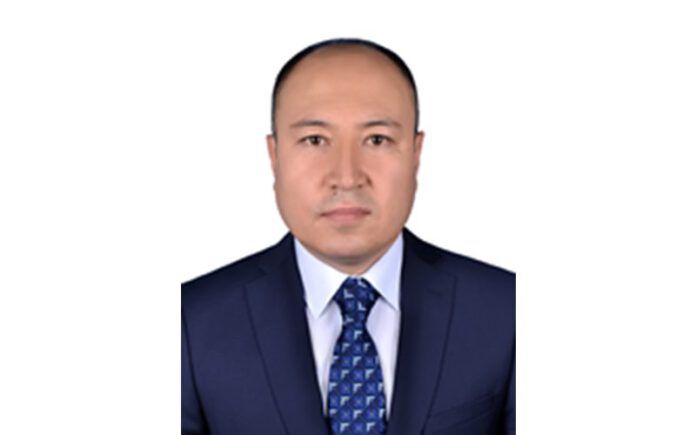การเปิดรับศาสนาในอุซเบกิสถาน – แนวทางและมุมมองที่เปลี่ยนไป
ด้วยการประกาศเอกราชและความมุ่งมั่นของรัฐบาลอุซเบกิสถานตามครรลองของประชาธิปไตย การเลือกเส้นทางฆราวาสเพื่อการพัฒนาสังคมนั้น ทำให้เกิดเงื่อนไขทางกฎหมายที่เท่าเทียมกันสำหรับการดำรงอยู่ของศาสนาโดยทั่วไปและกลุ่มศาสนาโดยเฉพาะอย่างเป็นระยะ ๆ
หนึ่งในผลลัพธ์สำคัญจากความร่วมมือนั้นคือการนำข้อมติจากการประชุมสมัขขาสหประชาชาติเมื่อเดือน ธ.ค. 2561 ว่าด้วย “การตรัสรู้และการเปิดรับทางศาสนา” มาปรับใช้
การนำมติดังกล่าวมาปรับใช้นั้นเป็นการดำเนินการตามความคิดริเริ่มของนาย Shavkat Mirziyoyev ประธานาธิบดีแห่งสาธารณรัฐอุซเบกิสถาน โดยมีจุดประสงค์เพื่อนำเสนอในการประชุมสมัชชาใหญ่แห่งสหประชาชาติสมัยที่ 72 เป้าหมายหลักของมติที่เสนอคือ “การรับรองการเข้าถึงการศึกษาอย่างทั่วถึง การกำจัดการไม่รู้หนังสือ และความเขลา”
เป็นที่น่าสังเกตว่าการลงมตินี้ไม่เพียงแต่ได้รับการสนับสนุนอย่างเป็นเอกฉันท์จากทุกประเทศสมาชิกสหประชาชาติที่รับกับผู้เขียนร่วมในกว่า 50 ประเทศ รวมทั้งประเทศไทยด้วย
โดยการดำเนินการทางกฎหมายที่นำมาใช้เพื่อปรับปรุงกิจกรรมของคณะกรรมการกิจการศาสนาภายใต้คณะรัฐมนตรีของสาธารณรัฐอุซเบกิสถานซึ่งเป็นองค์ประกอบใหม่ของสภาศาสนาซึ่งเป็นคณะที่ปรึกษาสาธารณะภายใต้คณะกรรมการได้รับการอนุมัติ
กฎหมายใหม่ว่าด้วยเสรีภาพทางมโนธรรมและองค์กรทางศาสนา มีผลบังคับใช้แล้ว ซึ่งจะมีส่วนสนับสนุนให้สิทธิตามรัฐธรรมนูญของพลเมืองในประเทศมีเสรีภาพทางมโนธรรมและศาสนาอย่างครบถ้วน
ปัจจุบัน มีองค์กรทางศาสนาเพียง 2,335 องค์กรจาก 16 นิกายทางศาสนาที่ดำเนินงานในอุซเบกิสถาน และ 2,142 แห่งเป็นองค์กรมุสลิม นอกจากนี้ยังมีองค์กรคริสเตียน 178 แห่งที่ดำเนินงานในอุซเบกิสถาน ชุมชนชาวยิว 8 ชุมชน ชุมชนศาสนาบาไฮ 6 แห่ง สมาคม Flare Krishna 1 แห่ง และวัดในศาสนาพุทธ 1 แห่ง รวมถึงสมาคมพระคัมภีร์ระหว่างศาสนาแห่งอุซเบกิสถาน
เมื่อเร็ว ๆ นี้ อุซเบกิสถานได้จดทะเบียนองค์กรทางศาสนา 96 แห่ง โดยในจำนวนนี้มีสถาบันการศึกษาอิสลามเฉพาะทางสูงกว่า 2 แห่ง และสถาบันการศึกษาเฉพาะทางอีก 1 แห่งในเมืองบูคารา ซามาร์คันด์ และเตอร์เมซ มัสยิด 74 แห่ง และโบสถ์ 19 แห่ง
เสรีภาพในการนับถือศาสนาที่รับรองโดยกฎหมายระดับชาติของอุซเบกิสถานได้สร้างเงื่อนไขที่จำเป็นทั้งหมดเพื่อตอบสนองความต้องการทางศาสนาของพลเมืองทุกคน – ตัวแทนจาก 138 กลุ่มระดับชาติและชาติพันธุ์
ตัวแทนของศาสนาต่าง ๆ เฉลิมฉลองวันหยุดทางศาสนาทั้งหมดอย่างอิสระ ดังนั้นทุกปี Eid al-Adha และ Ramadan Eid จึงมีการเฉลิมฉลองในวงกว้างมากขึ้นเรื่อยๆ – ในหมู่ชาวมุสลิม อีสเตอร์ และคริสต์มาส – ในหมู่ชาวคริสต์ ปัสกา ปูริม และฮานุกกะห์ – ในหมู่ชาวยิว, นวรุซ – ในหมู่บาไฮ เช่นเดียวกับงานเฉลิมฉลอง อุทิศให้กับพระพุทธเจ้าและกฤษณะและเหตุการณ์สำคัญอื่น ๆ
โดยสรุปควรเน้นว่าการปฏิรูปขนาดใหญ่ที่ดำเนินการในประเทศนั้นเป็นการยืนยันอย่างชัดเจนถึงความต่อเนื่องที่สอดคล้องกันโดยประธานาธิบดีแห่งสาธารณรัฐอุซเบกิสถานในการดำเนินการตามหลักการ “ทุกอย่างเพื่อมนุษย์เพื่อ เพื่ออนาคตของเขา”
โซดิคจอน โทชโบเยฟ
ประธานคณะกรรมการกิจการศาสนาภายใต้คณะรัฐมนตรีสาธารณรัฐอุซเบกิสถาน
Religious tolerance in Uzbekistan – changing approaches and views
With the declaration of independence and the commitment of the Government of Uzbekistan to the ideals of democracy, the choice of a secular path for the development of society gradually made it possible to create equal legal conditions for the existence of religions in general and religious groups in particular.
One of the significant results of the joint work is the adoption in December 2018 by the UN General Assembly of a special resolution, “Enlightenment and Religious Tolerance”.
The adoption of the resolution was the practical implementation of the initiative of the President of the Republic of Uzbekistan, Shavkat Mirziyoyev, put forward at the 72nd session of the UN General Assembly. The main goal of the proposed resolution is “ensuring universal access to education, the elimination of illiteracy and ignorance”.
It is noteworthy that the resolution was not only unanimously supported by all UN member states bud adopted with the co-authorship of over 50 countries, including Thailand.
By the adopted legislative acts, to further improve the activities of the Committee for Religious Affairs under the Cabinet of Ministers of the Republic of Uzbekistan, a new composition of the Council for Religious Affairs, which is a public advisory body under the Committee, was approved.
The new Law “On Freedom of Conscience and Religious Organizations” has entered into force, which will contribute to the full provision of the constitutional rights of citizens of the country to freedom of conscience and religion.
Currently, only 2 335 religious organizations of 16 religious denominations operate in Uzbekistan and 2142 of these are Muslim organizations. There are also 178 Christian organizations operating in Uzbekistan, 8 Jewish communities, 6 communities of the Baha’i Faith, one Flare Krishna society, and one Buddhist temple, as well as the interfaith Bible Society of Uzbekistan.
Recently, Uzbekistan has registered 96 religious organizations, of which 2 higher and one secondary specialized Islamic educational institution in Bukhara, Samarkand, and Termez, 74 mosques, and 19 churches.
The freedom of religion guaranteed by the national legislation of Uzbekistan has created all the necessary conditions for meeting the religious needs of all citizens – representatives of 138 national and ethnic groups.
Representatives of different faiths freely celebrate all religious holidays. Therefore, from year to year, Eid al-Adha and Ramadan Eid are celebrated on an increasingly large scale – among Muslims, Easter and Christmas – among Christians, Passover, Purim and Hanukkah – among Jews, Navruz – among Bahai, as well as festivities dedicated to Buddha and Krishna and other significant events.
In conclusion, it should be emphasised that the large-scale reforms being implemented in the country are an explicit confirmation of the consistent continuation by the President of the Republic of Uzbekistan of the implementation of the principle “Everything for the sake of man, for the sake of his future”.
Sodiqjon Toshboyev,
chairman of the Committee for Religious Affairs under the Cabinet of
Ministers of the Republic of Uzbekistan




